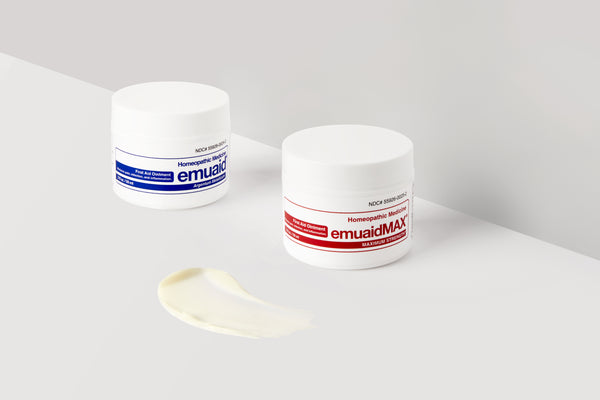Lichen sclerosus, a chronic skin condition, manifests as white patches on the skin. The skin in the affected areas tends to be thinner than the rest of the skin. The anal area, genital area, and particularly the vulva are most affected. Other areas affected include the skin around the torso, the breasts, and the upper arms.
Lichen Sclerosus - Causes, Symptoms and Treatment
What is Lichen Sclerosus?
What Causes Lichen Sclerosus?
The cause of lichen sclerosus is unknown. However, doctors believe that it is common in people with autoimmune disorders and hormonal imbalances. Additionally, genetics, infections, and past skin injuries play a role in its development.
Lichen sclerosus affects people of all ages. However, postmenopausal women and prepubescent children are at a greater risk of suffering from it. This condition is also common among uncircumcised males as it mostly affects the foreskin.
Lichen sclerosus cannot be transmitted from one person to another as it is not contagious. It, therefore, cannot be transmitted through sexual intercourse.
Symptoms of Lichen Sclerosus
Mild lichen sclerosus may be asymptomatic and may only present as white patches on the skin.
Signs and symptoms include:
- Shiny white patches.
- Pain or discomfort in the affected areas.
- Redness.
- Itchiness.
- Wrinkling of the skin.
- Bruising and blistering on the affected skin.
- Ulceration of the skin in severe cases.
- Pain during intercourse.
If left untreated, lichen sclerosus may result in complications which include:
- Infections.
Bruising, blistering, and ulceration of the skin due to severe lichen sclerosus lead to open wounds. These wounds are likely to get infected if they are not cleaned regularly. As most wounds are in the genital and anal regions, it can be challenging to keep them clean. Therefore, the risk of contracting secondary infections increases.
- Retention of urine.
- Difficulty retracting the foreskin.
- Painful erections.
- Constipation.
- Squamous cell carcinoma.
- Cancer of the vulva.
- Chronic pain in the vulva that causes painful sex.
Diagnosis
Usually, a gynecologist or doctor makes the diagnosis. It is done either by physical examination or conduction of a biopsy.
A doctor or gynecologist will take a physical history and examine the affected skin during a physical examination. However, a biopsy is necessary if the physical examination is inconclusive.
A biopsy involves taking a small section of the affected skin and observing it under the microscope. An anesthetic will numb the area in which the piece of skin will be taken from using a scalpel. The skin sample is then analyzed in the lab for diagnosis.
How to Treat Lichen Sclerosus?
Lichen sclerosus is a chronic condition and is currently incurable. Treatment aims at managing symptoms and preventing complications. Individuals with lichen sclerosus around the anal and genital areas and those with advanced cases on other parts of the body need to seek treatment from a professional. Lichen sclerosus recurs and rarely resolves by itself. However, in some cases, especially those involving children, it may resolve spontaneously.
Corticosteroid creams or ointments are the preferred treatment of lichen sclerosus. These offer relief from itching and scarring. Additionally, they improve the skin’s appearance. It could take months for normalcy to resume after initializing treatment.
Initially, topical corticosteroids should be applied to the areas affected twice daily. Subsequently, an application a few times a week will prevent a recurrence. Long-term treatment with corticosteroids may lead to thin skin as a result of atrophy. Additionally, they may cause yeast infections in the genitals.
Therefore, it is essential to have your treatment monitored if you are on long-term corticosteroid therapy. This can be done by scheduling regular appointments with your doctor. Immunomodulatory agents such as pimecrolimus and immunosuppressant ointments like tacrolimus are used when corticosteroid therapy fails. Tacrolimus and pimecrolimus are preferred to corticosteroids in long-term treatment.
Oral or topical retinoids, methotrexate, oral cyclosporin, and hydroxyurea are used to treat genital lichen sclerosus that is resistant to the treatments mentioned earlier. Phototherapy is a treatment involving the use of ultraviolet light. It can be used to treat lichen sclerosus on other body parts except for the genitals.
Surgery has been proven to be ineffective for advanced genital lichen sclerosus in women as the patches recur. However, surgery is useful when vaginal scarring is severe, but only if the lichen sclerosus is well controlled.
Surgery is effective in men with advanced genital lichen sclerosus who have not responded to other forms of treatment. In men, surgery involves Circumcision, which is excision of the foreskin. This offers a permanent solution as it prevents the recurrence of the condition.
Vaginal dilators, numbing creams, and water-based lubricants can be prescribed to women experiencing painful sex.
It is essential for medical professionals to conduct patient education in addition to giving treatment. Patients should be educated on the chronic nature of the condition and the importance of adhering to treatment to prevent a recurrence. The condition can cause abnormal developments. Therefore, you need to conduct frequent self-examinations. This is because lichen sclerosus is associated with an increased risk of cancer.
Patients should be encouraged to visit a gynecologist or dermatologist for annual cancer screening. Patients with genital lichen sclerosis should also be educated on the need for screening for urinary and sexual dysfunction at each doctor’s visit.
Home Remedies for Lichen Sclerosus
Some self-care practices can be applied to relieve symptoms of lichen sclerosus. These include:
- Applying a moisturizer such as petroleum jelly to the affected area.
- Using ice packs and cold compresses to ease the burning sensation.
- Taking an oral antihistamine to alleviate itching.
- Taking a warm bath to relieve discomfort.
Lifestyle changes to manage the symptoms and limit the progression of the condition include:
- Avoidance of harsh soaps and chemicals, scented sheets, and genital sprays.
- Wearing cotton or silk underwear during the daytime and sleeping without underwear.
- Wearing silk underwear can significantly improve the symptoms.
- A low-oxalate diet helps to manage inflammation associated with lichen sclerosus. Foods rich in oxalate have been reported to cause inflammation. Eliminating oxalate-rich foods from the diet, therefore, helps to reduce inflammation in people with lichen sclerosus. Some oxalate-rich foods to avoid include spinach, dried fruit, rhubarb, boxed cereals, almonds, nuts, cocoa powder, bran flakes, and rice bran.
*DISCLAIMER: The statements on this website have not been evaluated by the Food and Drug Administration. The products found within are not intended to diagnose, treat, cure or prevent diseases. Nothing on this website is intended to diagnose, treat or cure any physical or medical conditions. Results may vary.
Homeopathic claims are not backed by scientific evidence – they are based only on theories of homeopathy from the 1700s that are not accepted by most modern medical experts.
Testimonials appearing on this site are received via electronic feedback through verified customers. They are individual experiences, reflecting real life experiences of those who have used our products in some way or other. However, they are individual results and results do vary. We do not claim that they are typical results that consumers will generally achieve. The testimonials are not necessarily representative of all of those who will use our products.
The testimonials displayed are given verbatim directly from verified customers and are not edited or censored in any way.
SPEER Laboratories. is not responsible for any of the opinions or comments posted to our site. It is not a forum for testimonials, however provides testimonials as a means for customers to share their experiences with one another. To prevent against abuse, all testimonials appear after they have been reviewed by management of SPEER Laboratories. SPEER Laboratories. does not share the opinions, views or commentary of any testimonials on this site, and are strictly the views of the reviewer.


